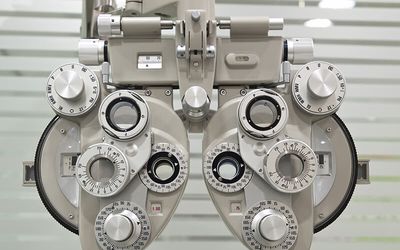Medical Conditions
FAA Medical Certificate Disqualifying Conditions
What Medical Conditions Does the FAA Consider Disqualifying?
Is it time to renew your FAA medical certificate or are you a first-time applicant? Are you worried that you may not qualify? If so, this page is here to help give you some clarity as to what to expect when going in for your flight physical. We cover some of the more common disqualifying conditions and discuss the FAAs potential flexibility around conditions that are deemed adequately controlled.
Dr. Ewan D. Johnson deals with a variety of conditions and issues during examinations, including:
Any of these can be disqualifying, each with a certain degree of flexibility. According to the FAA, here are the current disqualifying medical conditions for Class 1, Class 2, and Class 3 pilots (note that each class has different standards, with Class 1 being the most strict):

Tips for Getting Certified
Select an aviation medical examiner (AME) who will be your advocate
Triple-check you have all your documents
Retain copies of all documents you send to the FAA
Keep your records highly organized
Provide the FAA with only the information they ask for
Don’t show up to an FAA physical if you are ill or otherwise impaired — instead, reschedule
Communicate beforehand with your flight physician
Work With an Aviation Medical Examiner
Ewan D. Johnson MD, PhD is a licensed AME capable of providing FAA medical exams of all the types listed above, including:
Class 1
Class 2
Class 3
Air Traffic Control Specialist
Special Issuance
HIMS Evaluation
Read more about each of these different classes of pilot medical exams here. If you have some medical conditions that you are concerned may disqualify you from your class of aviation medical certificate, you may still qualify for them if you have the situation properly managed. You also may have the option of getting an AME Assisted Special Issuance (AASI) certification. This is a certificate that gives an airman the possibility of getting their medical certificate under the provisions of an Authorization to an applicant who has a medical condition that is disqualifying under 14 CFR part 67.
The list above is not a complete list of disqualifying conditions for the FAA pilot physical. The FAA can deny an application for an aviation medical for a wide variety of reasons. This list is to give you a starting point so when you speak with Ewan D. Johnson MD, PhD you already have an idea of what kinds of questions you should ask, and get an idea of what your expectations should be going in. Contact Dr. Johnson today to discuss your medical conditions or schedule an FAA exam.





